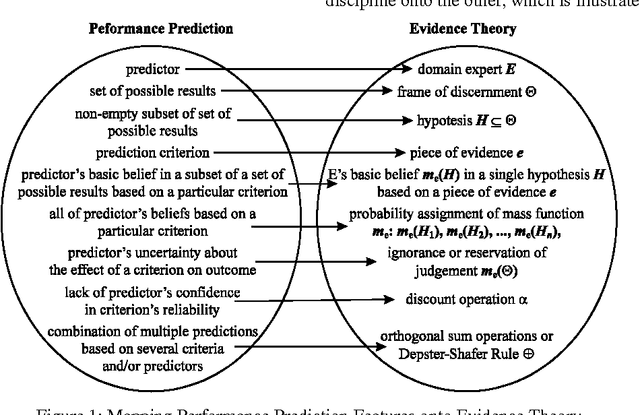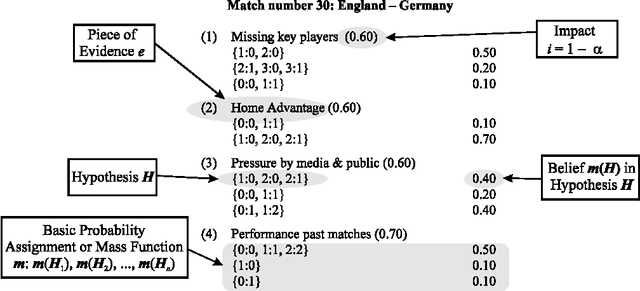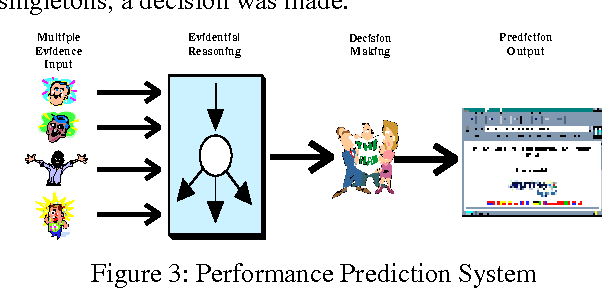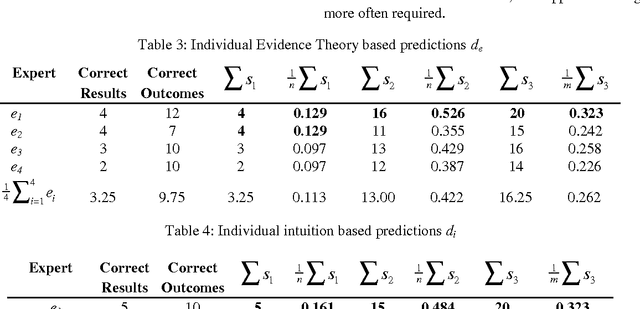John G. Hughes
Representing Heuristic Knowledge in D-S Theory
Mar 13, 2013
Abstract:The Dempster-Shafer theory of evidence has been used intensively to deal with uncertainty in knowledge-based systems. However the representation of uncertain relationships between evidence and hypothesis groups (heuristic knowledge) is still a major research problem. This paper presents an approach to representing such heuristic knowledge by evidential mappings which are defined on the basis of mass functions. The relationships between evidential mappings and multi valued mappings, as well as between evidential mappings and Bayesian multi- valued causal link models in Bayesian theory are discussed. Following this the detailed procedures for constructing evidential mappings for any set of heuristic rules are introduced. Several situations of belief propagation are discussed.
RES - a Relative Method for Evidential Reasoning
Mar 13, 2013Abstract:In this paper we describe a novel method for evidential reasoning [1]. It involves modelling the process of evidential reasoning in three steps, namely, evidence structure construction, evidence accumulation, and decision making. The proposed method, called RES, is novel in that evidence strength is associated with an evidential support relationship (an argument) between a pair of statements and such strength is carried by comparison between arguments. This is in contrast to the onventional approaches, where evidence strength is represented numerically and is associated with a statement.
Corporate Evidential Decision Making in Performance Prediction Domains
Feb 06, 2013



Abstract:Performance prediction or forecasting sporting outcomes involves a great deal of insight into the particular area one is dealing with, and a considerable amount of intuition about the factors that bear on such outcomes and performances. The mathematical Theory of Evidence offers representation formalisms which grant experts a high degree of freedom when expressing their subjective beliefs in the context of decision-making situations like performance prediction. Furthermore, this reasoning framework incorporates a powerful mechanism to systematically pool the decisions made by individual subject matter experts. The idea behind such a combination of knowledge is to improve the competence (quality) of the overall decision-making process. This paper reports on a performance prediction experiment carried out during the European Football Championship in 1996. Relying on the knowledge of four predictors, Evidence Theory was used to forecast the final scores of all 31 matches. The results of this empirical study are very encouraging.
 Add to Chrome
Add to Chrome Add to Firefox
Add to Firefox Add to Edge
Add to Edge